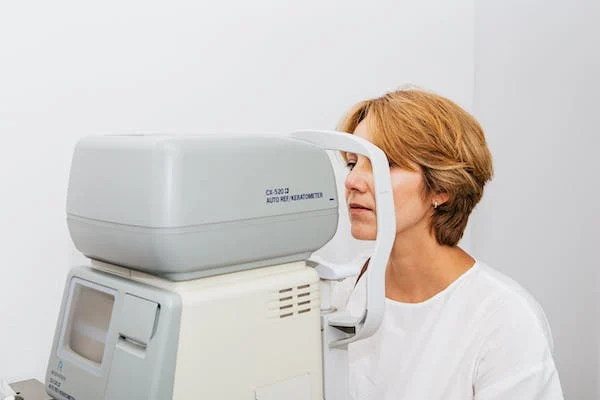
Diabetes is a chronic disease that affects millions of people worldwide. It is a condition wherein the body cannot produce or properly use insulin, which is essential for the body to convert carbohydrates into energy.
Diabetes can lead to many complications, including vision problems. In fact, according to the World Health Organization (WHO), diabetes is the leading cause of blindness in working-age adults. However, with proper glucose control, it is possible to prevent or delay vision problems in diabetics.
Understanding Diabetes
Diabetes is a complex and chronic medical condition that requires continuous management to prevent serious complications. There are two primary types of diabetes: Type 1 and Type 2.
Type 1 diabetes is an autoimmune disease where the body’s immune system attacks and destroys the cells in the pancreas that produce insulin. On the other hand, Type 2 diabetes is a metabolic disorder where the body becomes resistant to the insulin it produces, and over time, the pancreas may not be able to produce enough insulin to keep up with the body’s needs.
Despite the differences in their causes, both types of diabetes are characterized by high levels of glucose in the blood. Understanding diabetes is crucial because it can lead to serious health complications if not managed properly, including cardiovascular disease, kidney damage, nerve damage, and vision loss.
The Relationship Between Vision Problems and Diabetes
Diabetes is a complex disease that can affect various parts of the body, including the eyes. High glucose levels in the blood can damage the blood vessels present in the retina, causing a condition known as diabetic retinopathy. Diabetic retinopathy is a serious complication of diabetes that can cause vision loss and, in severe cases, blindness if left untreated.
In addition to diabetic retinopathy, other vision problems that can occur in diabetics include cataracts and glaucoma. Cataract is the clouding of the lens in the eye, which can cause blurry vision, while glaucoma is a condition where increased pressure in the eye damages the optic nerve, leading to vision loss.
Preventing Vision Problems in Diabetics
The key to preventing vision problems in diabetics is proper glucose control. By keeping blood sugar levels within the target range, the risk of developing diabetic retinopathy and other vision problems is reduced. Other steps that can be taken to prevent vision problems include:
Regular eye exams: Diabetics should have a dilated eye exam at least once a year to check for any signs of diabetic retinopathy.
Blood pressure control: High blood pressure can also contribute to vision problems in diabetics. It is important to keep blood pressure under control by following a healthy diet, exercising regularly, and taking medication as prescribed.
Quitting smoking: Smoking can increase the risk of developing diabetic retinopathy and other vision problems. Quitting smoking is an important step in preventing vision problems in diabetics.
Using Discount Cards: Diabetics can benefit from using a discount card to save money on their prescription medications. These cards offer discounts on a wide range of prescription drugs, including those used to treat diabetes. By saving money on medications, diabetics can better afford the care they need to keep their blood sugar levels in check.
Conclusion
In conclusion, diabetes is a serious condition that can lead to vision problems if left uncontrolled. However, with proper glucose control and regular eye exams, it is possible to prevent or delay vision problems in diabetics.
Additionally, by following a healthy lifestyle, including exercise, a healthy diet, and quitting smoking, diabetics can further reduce their risk of developing vision problems. By utilizing a discount card, they can also save money on their prescription medications, making it easier to afford the care they need to stay healthy.

